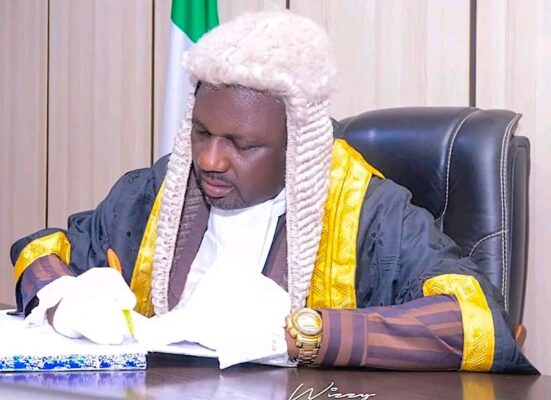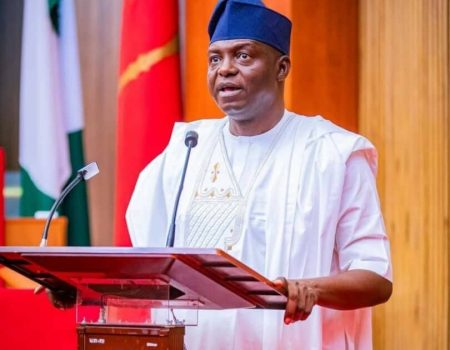The Benue State House of Assembly witnessed a dramatic shift in power dynamics on Tuesday, culminating in the three-month suspension of the immediate past Speaker, Aondona Dajoh. The suspension stemmed from accusations of orchestrating an impeachment plot against Governor Hyacinth Alia. Representative Terna Emmanuel, representing Vandeikya II Constituency, spearheaded the motion, alleging that Dajoh had hosted a clandestine meeting of lawmakers at his residence the previous Thursday, where the alleged impeachment scheme was hatched. Emmanuel initially proposed a six-month suspension, arguing it would provide Dajoh with ample time to reflect on his actions. This motion received support from Representative Abu Umoru of Apa Constituency, who cited precedents of similar suspensions for comparable offenses. Speaker Alfred Embe, presiding over the session, delivered the ruling, condemning Dajoh’s actions and imposing the three-month suspension.
The plenary session, marked by this significant disciplinary action, also revisited the confirmation of two commissioner nominees, Dr. Timothy Yangien Ornguga and James Dwen. These nominees had initially faced rejection the previous week under Dajoh’s speakership. However, Governor Alia resubmitted their nominations, accompanied by a letter read aloud by Speaker Embe, emphasizing that neither nominee had any prior convictions or indictments. Embe underscored the House’s role as being limited to screening and recommendations, highlighting that the nominees would ultimately serve as staff of the governor, accountable to him in their service to the state. Following this clarification, the House proceeded to confirm both nominees.
In a further turn of events, the House extended an olive branch to three previously suspended officials: Dr. Grace Adagba, Chairman of the State Universal Basic Education Board; Maxwell Ogiri, Executive Chairman of Otukpo Local Government Area; and Michael Upper, Executive Secretary of the State Lottery and Sporting Board. The House recommended that Governor Alia lift their suspensions, a decision prompted by apology letters submitted by the officials. Speaker Embe, invoking the principles of human fallibility and divine forgiveness, expressed the belief that these officials, having acknowledged their errors, would no longer pose a threat to the House’s authority. This act of clemency signaled a potential easing of tensions within the state’s political landscape.
The swift action against the former Speaker and the subsequent confirmation of the previously rejected commissioner nominees reflect a significant consolidation of power under the new leadership of Speaker Embe. Dajoh’s suspension, while raising questions about due process and the potential for political maneuvering, demonstrates the new Speaker’s resolve to assert his authority and quell any internal dissent that could threaten the stability of the Alia administration. The timing of the suspension, immediately followed by the confirmation of the governor’s preferred nominees, suggests a coordinated effort to solidify the governor’s influence within the legislative branch.
The House’s recommendation to lift the suspensions of the three other officials further underscores this theme of consolidation and control. While presented as an act of forgiveness, it also serves to reinforce the House’s authority and demonstrate its willingness to work with those who demonstrate appropriate deference. By accepting their apologies and recommending the lifting of their suspensions, the House effectively reasserts its position as the final arbiter of political conduct within the state. This carefully orchestrated series of actions sends a clear message: loyalty to the current leadership will be rewarded, while dissent will be swiftly and decisively dealt with.
The events of this Tuesday session offer a compelling glimpse into the dynamics of power within Benue State’s political arena. The rapid shift in leadership, accompanied by the swift punitive action against the former Speaker and the subsequent acts of clemency, paint a picture of a political landscape undergoing significant transformation. The actions taken by the House, while ostensibly maintaining order and stability, raise questions about the long-term implications for democratic processes and the balance of power between the executive and legislative branches. The unfolding political drama in Benue State warrants close observation as it will likely have a profound impact on the state’s governance and future political trajectory.














